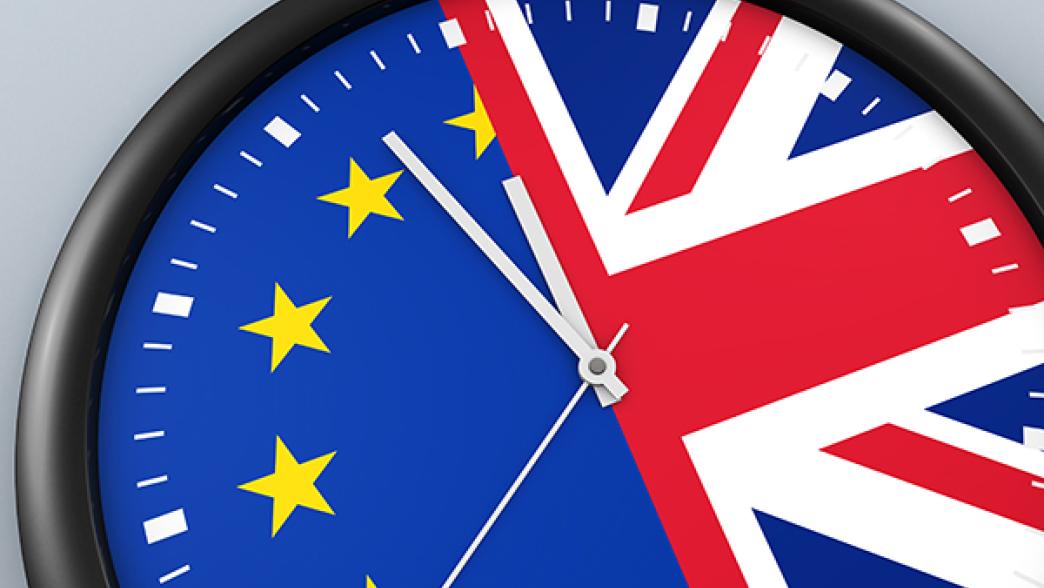Article 50 extension
Article 50 of the Lisbon Treaty is the legal process for leaving the EU.

Article 50 of the Lisbon Treaty is the legal process for leaving the EU. It establishes a two-year negotiation period, after which the departing member state is no longer subject to the EU’s treaties.
The UK triggered Article 50 on 29 March 2017, which means the UK was due to leave the EU at 11:00pm on 29 March 2019. The UK asked for three extensions to the negotiating period. It left the EU on 31 January 2020.
Who decides to extend Article 50?
Article 50 allows for either party to request an extension. In the case of Brexit negotiations, it was the UK that requested all three extensions.
Extensions to Article 50 require unanimous agreement in the European Council, the grouping of all EU heads of state and government.
How many extensions were there?
There were three extensions in total.
The first extension was granted on 21 March 2019. The UK and the EU agreed to extend Article 50 until either 22 May, subject to MPs approving the Withdrawal Agreement, or failing that until 12 April.
After MPs rejected the deal for the third time, Prime Minister Theresa May wrote to President of the European Council Donald Tusk requesting a second extension until 30 June 2019. The EU27 agreed two options – an extension until 1 June if the UK failed to hold European Parliament elections – or an extension to 31 October if it did.
In September, backbench MPs took steps to legislate on a third Article 50 extension. The EU Withdrawal (No.2) Act – the so-called Benn Act – stated that the prime minister would have to send a letter to the EU asking for a third extension until 31 January 2020 if MPs hadn’t approved a deal with the EU, or approved leaving without a deal, by 19 October 2019.
On 19 October 2019, the government tried to hold a meaningful vote on the deal Boris Johnson renegotiated with the EU, but MPs passed an amendment from Oliver Letwin which made clear that MPs would withhold their approval of the Withdrawal Agreement until the Withdrawal Agreement Bill had been passed.
As a result, the prime minister wrote to Donald Tusk requesting an extension until 31 January 2020. The EU accepted this request on 28 October 2019.
What was the UK parliament’s role in the process of extending Article 50?
To extend Article 50, the government needed to amend the exit date in UK law, which it was able to do under the EU Withdrawal Act 2018.
The EU Withdrawal Act 2019 amended this process to ensure that the UK government did not need approval votes in Parliament to make the legal change (or any future legal change) – a measure included to help speed up the extension process.
MPs also took steps on two occasions to legislate to require the government to extend Article 50. In April, parliament passed the EU Withdrawal Act 2019 (the so-called Cooper Act) to require the government to seek an extension – although this was passed after Theresa May had already written to the EU. In September, parliament passed the EU Withdrawal (No.2) Act (the so-called Benn Act) which went further and required the government both to request and agree an extension to Article 50.
Could the UK have bought more time by revoking Article 50?
In 2017, a number of senior politicians in the UK such as former Prime Minister John Major and Conservative MP Ken Clarke suggested that the UK could buy more time by unilaterally revoking Article 50.
In December 2017, the European Court of Justice (ECJ) ruled that a member state could decide to revoke the Article 50 notification unilaterally during Article 50 negotiations. However, the judgment made clear that the decision to remain in the EU should be “unequivocal and unconditional” – in other words, the UK could not revoke and then immediately retrigger Article 50. But even then, it is hard to see how the ECJ could have taken action had the UK revoked and only to start Article 50 negotiations at a later date.